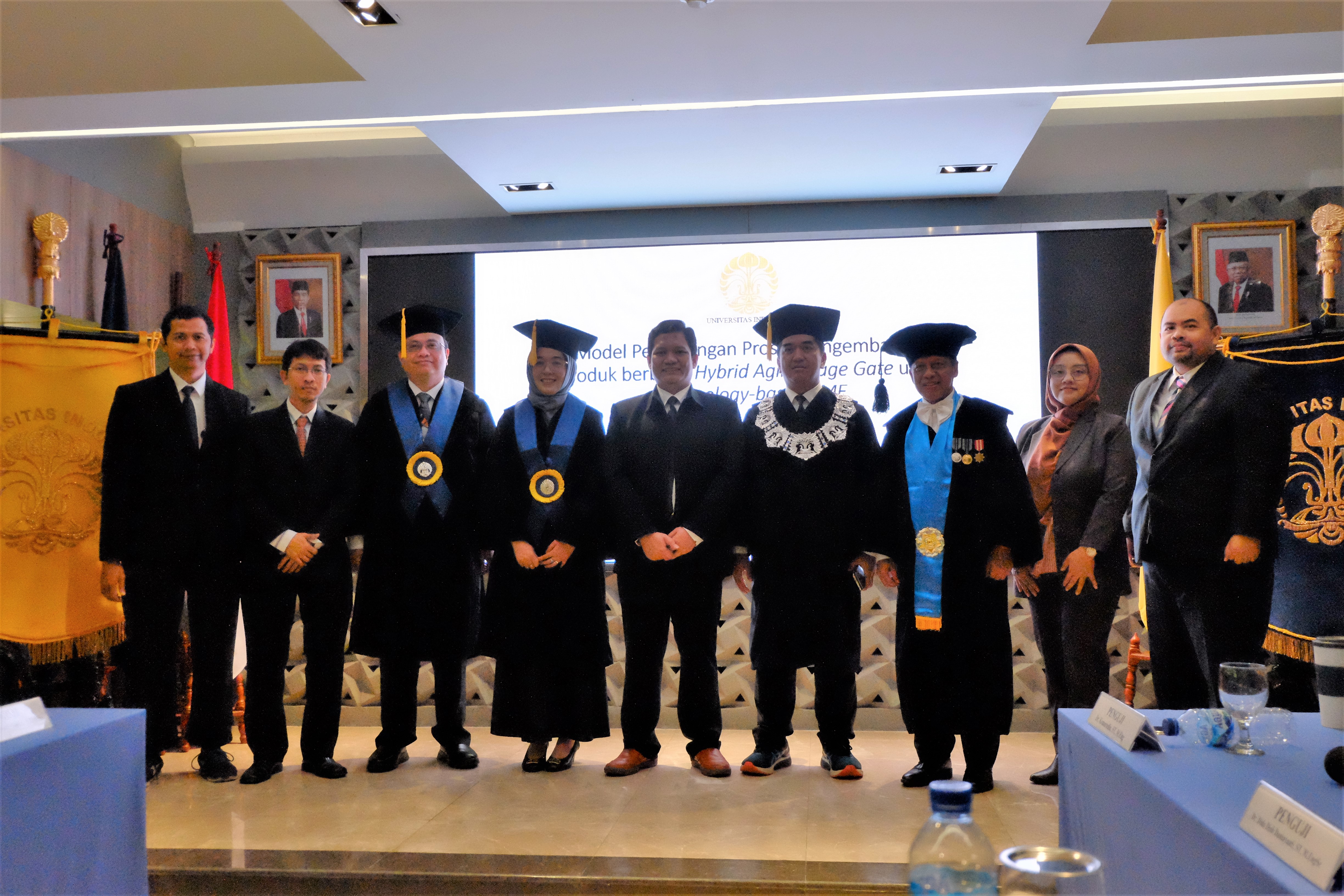New product development (New Product Development/NPD) is crucial for the growth and sustainability of a company, both large enterprises (large enterprise) and micro, small, and medium enterprises (Small and Medium Enterprise/SME). However, even though NPD is important, increasing the success of NPD to become a successful product is still a challenge for the company. Several studies have shown that NPD still has a fairly high risk of failure, which is around 24-48%.
In Indonesia, especially in the SME business, understanding of the importance of NPD and the formalization of the NPD process is still relatively low. Based on the Ministry of Cooperatives and UKM & TNP2K, most of the SME business difficulties are related to NPD. This became the background for Muhammad Iqbal to conduct his dissertation research entitled “Product Design Model for Hybrid-Agile-Stage-Gate-Based Product Development Processes for Technology-Based SMEs.” In his research, Iqbal focused on the NPD in the Technology-Based sector which is one of the important sectors in SMEs as technology continues to develop.
“Some of the obstacles faced by Technology-Based SMEs in conducting NPD are the lack of resources to carry out product development, development time, and validation of ideas as well as exploration of product opportunities that are not detailed enough. Broadly speaking, this is happening because there is no complete and structured NPD process flow to be used as a guideline for all NPD stages,” said Iqbal in a brief presentation of his dissertation.
Good NPD design and implementation will reduce the risks of constraints on the NPD. There are three important aspects in designing the NPD process for a model, namely following the NPD process design method, considering the focus of the NPD process that has been designed, and representing the results of the process design. In this study, Iqbal said that the NPD process design model for Technology-Based SME consists of the NPD process design stages and the domain of the NPD stages. The focus of the NPD process is carried out using the Hybrid-Agile-Stage-Gate approach. While process representation relates to sequencing and scheduling, decomposition, lead time, review timing, and parallelism.
Based on the implementation of the model developed in the case study, Iqbal was able to design eleven NPD processes. The evaluation results of the implementation of the NPD process design that Iqbal had made showed that the average NPD score increased by 28.22% compared to the current NPD score. This shows that a complete and structured NPD process is capable of improving previous NPD practices.
“This research produces an NPD process design model that can help Technology-Based SMEs to design NPD processes that are relevant to the situation they face. This model needs to be seen not only as a way to obtain NPD procedural documents but is expected to be a means of obtaining NPD success,” said Prof. Dr. Heri Hermansyah, ST., M.Eng., IPU, Dean of FTUI regarding this research.
His research dissertation on the NPD process design model for Technology-Based SMEs succeeded in getting Muhammad Iqbal to earn his doctorate on January 10, 2023. Iqbal is listed as the 17th doctoral graduate of the Department of Industrial Engineering and the 496th graduate of the Faculty of Engineering, Universitas Indonesia. The Promotion Session was chaired by Prof. Dr. Heri Hermansyah, ST., M.Eng., IPU, with promoter Prof. Dr. -Ing. Amalia Suzianti, S.T., M.Sc. and co-promoter Prof. Dr. Akhmad Hidayatno, S.T., MBT. While the examiner team consisted of Prof. Ir. Alva Edy Tontowi, MSc, Ph.D.; Dr. Komarudin, ST, MEng.; Dr. Dida Diah Damajanti, ST, MEngSc.; Dr. Andri Dwi Setiawan, ST, MSc.; and Dr. Armand Omar Moeis, ST, MSc.
***
Bureau of Public Communications
Faculty of Engineering, Universitas Indonesia

